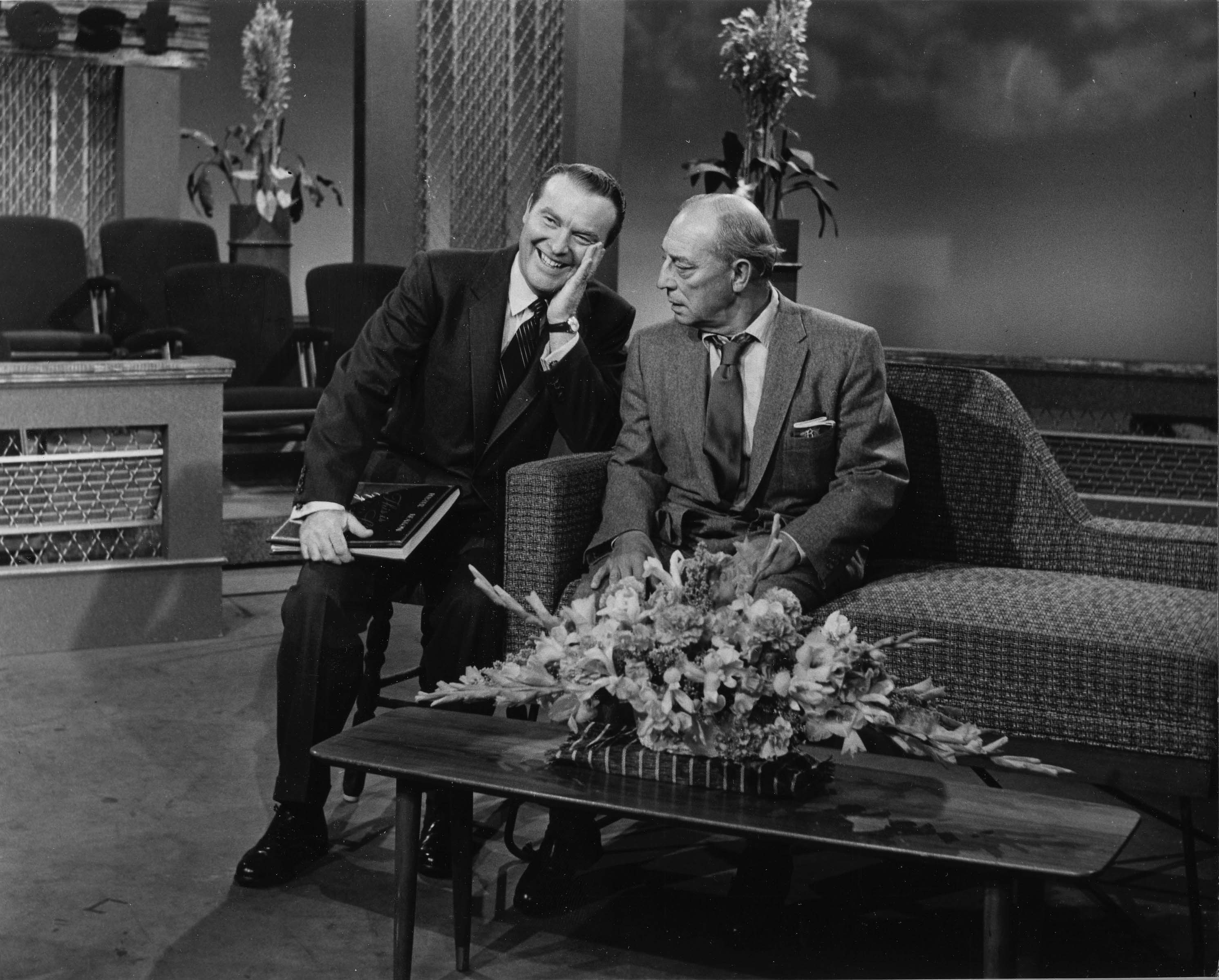Imagine being plucked from an audience and surprised by old friends from elementary school, your college roommate and maybe even your grandmother, all on live, national television.
This was the premise of the classic television show, “This Is Your Life,” which aired from 1952 to 1961. Hosted by Ralph Edwards, the show featured an unsuspecting person, oftentimes a celebrity, who was chosen to be surprised by various old friends, family members and colleagues.
The UCLA Film & Television Archive will be presenting four episodes of the show on Sunday at 7 p.m. at the Billy Wilder Theater at the UCLA Hammer Museum. The Ralph Edwards Productions company donated the original episodes to the archive not only for preservation, but to also share the show with today’s general public.
“We donated these archives to UCLA because these shows really haven’t been appreciated or seen by the public very much since they were first aired. We’ve been keeping them safely in storage for over 50 years, and we just decided that it was better to share them,” said John Couch, vice president of business affairs at Ralph Edwards Productions.
The show, which was one of the first shows to transition from radio to television, is a prime example of early reality television, way before VH1 and MTV inundated the genre with reality shows about D-listers searching for love. The medium of television was still relatively new then, and “This Is Your Life” utilized a live format to broadcast the show to emphasize its realism.
“There’s a certain charm to the live broadcast. “˜This Is Your Life’ took it a step further with this notion of liveness and to this notion that people in the audience were chosen at that moment, which gave it a surprise element and spontaneity.” said Vincent Brook, a UCLA professor of film and television.
Despite the good intentions of the surprise, many celebrities were upset about being caught off-guard on this relatively new medium of entertainment and were reluctant to accept their sudden starring role in the episode.
“People didn’t know that they were going to be chosen, and not everybody was pleased because in those days, it was still looked down upon, because television was still seen as uncultured, and the movie studios were threatened because television was competing with them in terms of watching television and watching movies,” Brook said.
Despite having a few reluctant participants, “This Is Your Life” didn’t have any ulterior motives other than to feature and honor a person. Guests were chosen based on their character and worthiness rather than purely for publicity, and they were given a tribute to their life instead of a roast or a pedestal for embarrassment. Not only did the show feature famous celebrities, but it also showcased the stories of average citizens, such as doctors, war heroes and police officers.
“Some of the best shows were not even about famous people but lots of people who quietly do things that made the world a better place or survived things that we just can’t imagine, and their stories are very good as well,” said Dan Einstein, a UCLA film archivist who will be introducing the show on Sunday night.
The show was also a barometer for the mannerisms and styles of the ’50s, where conservative dress and squeaky-clean colloquialisms were the norm, which was a vast departure from the banana-sling tube tops and expletive-laced rants found on reality television today.
“What’s also interesting is what life was like in the ’50s and the vernacular and words people used and the way they dressed. People showed up with hat and gloves and modest clothing, and it was very different than now on reality television, where it’s like, “˜please put on some clothes,'” Couch said.
Likewise, the show did not rely on modern-day reality show gimmicks such as self-manifested drama or shoddy editing. The show explored the guests’ private lives, making them seem more relatable to the audience. For example, one of the episodes playing on Sunday night revealed that Lou Costello, from the famed comedic duo Abbott and Costello, donated large sums of money to youth organizations after his young son tragically drowned in the family pool.
Along with Costello, the episodes playing on Sunday will feature celebrities Buster Keaton, Harold Lloyd, Bud Abbott, George Burns and Gracie Allen. Einstein expects that the tributes will be as rawly emotional as they are real.
“They’re going to see a lot of emotion that they wouldn’t have expected; all the subjects are taken by surprise,” Einstein said. “It’s a behind-the-scenes look at their personal life, not necessarily their professional life, but who they are as people, and that usually leads to a lot of emotion that people don’t expect to see.”
